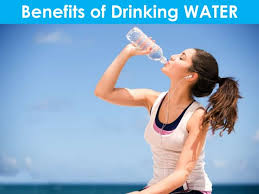
Water plays a important role in different bodies functions, including regulating bodily temperature, transporting nutrients, aiding digestion and flushing out toxics. Drinking an adequate amount of water in a day is crucial for maintain overall health.
The general recommendation about daily water drinking is about 8 glasses (125 ounces) every day in not actually as definitive as it may look. Taking water recommendation can vary based on various factors such as climate, physical activity and individual health conditions. By staying hydrate helps maintain energy levels, supports cognitive function and promotes healthy skin.
To stay properly hydrated, its essential to listen to your body and drink water throughout the day.
In this article a comprehensive detail you can get about the how many ounces of water you can drink a day:
How many ounces of water should you drink a day?
The recommendation about drinking water a day is not only one’s. The amount of water you should drink daily can vary depends on various factors like as age, sex, body weight, physical activity, climate and overall health.
Below are detailed breakdown:
1. General Recommendation
- For Men: 127 ounces (3.7 liters) of water per day.
- For women: 91 ounces (2.7 liters) of water a day.
Few people may involve more water than the general recommendations due to different factors, including:
2.Physical Activity
Physical activity enhances the body water needs due to fluid loss by sweat, which helps regulate body temperature. The more intense the activity, the more water is lost, creating it important to stay hydrated. Short activates water is typically sufficient for this, However more intense workouts may involve electrolyte replenishment.
Before during and after drinking water exercise helps maintain hydration, performance optimization and prevent dehydration relevant issues such fatigue and heatstroke.
Adjusting water intake based on activity intensity, duration and environmental conditions is crucial for maintaining proper hydration.
3.Environment and Climate
Significantly environment and climate affect the body’s water needs. In hot and humid conditions, the body losses more water by sweat as it tries to cool down, enhancing the need for fluid intake to prevent dehydration. Likely wise, high altitudes can reason enhanced urination and more rapid breathing, leading to greater fluid loss.
Cold environment can also enhance water needs, like the body uses more energy to maintain its important temperature. In all these situations, its crucial to adjust water consumption to stay adequately hydrated and support the body’s natural cooling and heating processes.
4. Health Conditions
Few health conditions such as fever, vomiting and diarrhea lead to enhanced fluid loss, involving higher water intake to prevent dehydration. In chronic conditions as kidney stones or urinary tract infections also demand more fluids to aid in flushing out toxins and prevent stone formation. Moreover, people with conditions as diabetes may experience frequent urination, enhancing their need for water. In these cases, staying well-hydrated is important for managing symptoms and supporting overall health.
Above of all these factors can influence how much water an individual needs in a day, therefore its essential to adjust water intake accordingly to maintain optimal hydration.
What are the benefits of drinking water?

For body functions properly, human body depends on intake water. Actually, no one can live without water for more than a few days.
Here are key benefits of water:
- Body Hydration: For maintain optimal hydration, supporting bodily function as digestion, circulation and regulation of temperature.
- Skin Health: To Keep skin hydrated its help, and may decrease the appearance of dryness and wrinkles.
- Boosts Energy Levels: Its helps boosts overall energy by maintaining cellular functions.
- Digestion Supports: Aids in the digestion process and prevents constipation through helping food move by the digestive tract.
- Maintain Body Temperature: It helps the body regulates a stable temperature by perspiration and evaporation.
- Immune System Maintain: Water helps in maintaining the balance of bodily fluids and supports the immune system in fighting off infections.
- Cognitive Function Improves: Increases concentration, memory and overall brain function through keeping the brain hydrated.
- Weight Management: It may decrease hunger, preventing overeating and assisting in weight management.
Enough water taking in day is crucial for maintain physical and mental health and water helps ensure the body performs its functions effectively.
How much water is too much?
Drinking water too much can lead to a condition famous as water intoxication, where the levels of sodium in your blood become dangerously low. It can reason symptoms as:
- Nausea
- Headache
- Confusion
- Seizures
How much is too much?
1. The amount of water which is too much can vary based on individual factors like as kidney function, physical activity and climate, however generally, drinking more than 33 ounces (1 liter) of water each hour consistently can overwhelm the kidneys, that can only process about 0.8 to 1.0 liters each hour.2. The generally recommendation daily water intake in around 125 ounces (3.7 liters) this is for men and for women 91 ounces ( 2.7 liters). Drinking water well above these amounts, particularly over a short period, can be dangerous.
Overhydration Symptoms
Overhydration can be reasons for various symptoms including:- Swelling
- Frequent Urination
- Vomiting
- Disorientation
How much water should kids drink?
Kids requirement for liquid intake is 4 to 8 cups of liquid beverages in daily, its also depends on their age. Kids stay hydrate from milk in addition to water.
Daily Water Intake Guidelines for Kids:
Kids age (1-3 years) : 4 cups of liquid required per day.
Kids age (4-8 years): 5 cups of liquid required per day.
Kids age (9-13 years): 7-8 cups of liquid required per day.
Important Considerations for Kids:
- Physical Activity: For active children need more water to replace fluids lost by sweat, particularly during outdoor sports.
- Humid Weather: Kids may wants more water to stay hydrated and prevent heat-related illnesses, on hot days.
- Foods: Intake water can also come from other beverages and foods with high water content .
Moreover, proper hydration is crucial for kids health, for supporting their health, level of energy and overall well-being. Encourage regular water intake whole day.
What are the sign's of not getting enough water?
As per general recommendation about drinking water 0f 8 glasses per day is crucial for body function
Signs of not getting enough water or dehydration can range from mild to severe, depending on the level of fluid loss. Here are some common signs:
Primary Sign of Dehydration:
ThirstThroat
Fatigue
Dark Urine
Headache
However, you experience any of these sign’s , its crucial to enhanced your water intake. But its important to know for everyone, above all sig’s is not true for everyone. As like blood sugar and someone with diabetes may be with clear urine clear, but they could be dehydrated. Various diseases have different symptoms, so if above symptoms persist, seek medical attention to prevent further complications.
Reason of you might not enough water to keep hydrate
There are many reasons, why you might not get enough water to keep hydrated.
One of them is simply not taking enough whole the day, usually due to a occupied schedule, forgetting or less of access to clean water. Enhanced physical activity and hot can lead to higher fluid loss by sweat, necessitating more water intake. Diseases like as fever, vomiting or diarrhea also contribute to dehydration through enhancing fluid loss. Dietary factors, such as consuming too much caffeine, which have diuretic effects, can more exacerbate dehydration. Adults (older) may experience decreased thirst sensation, leading to inadequate water consumption.
Moreover, certain medical situations, such as diabetes or medications, like as diuretics, can enhance urination, making it herder to stay hydrated. Whole these factors highlight the importance of adjusting water intake to meet the body’s changing requirement.





